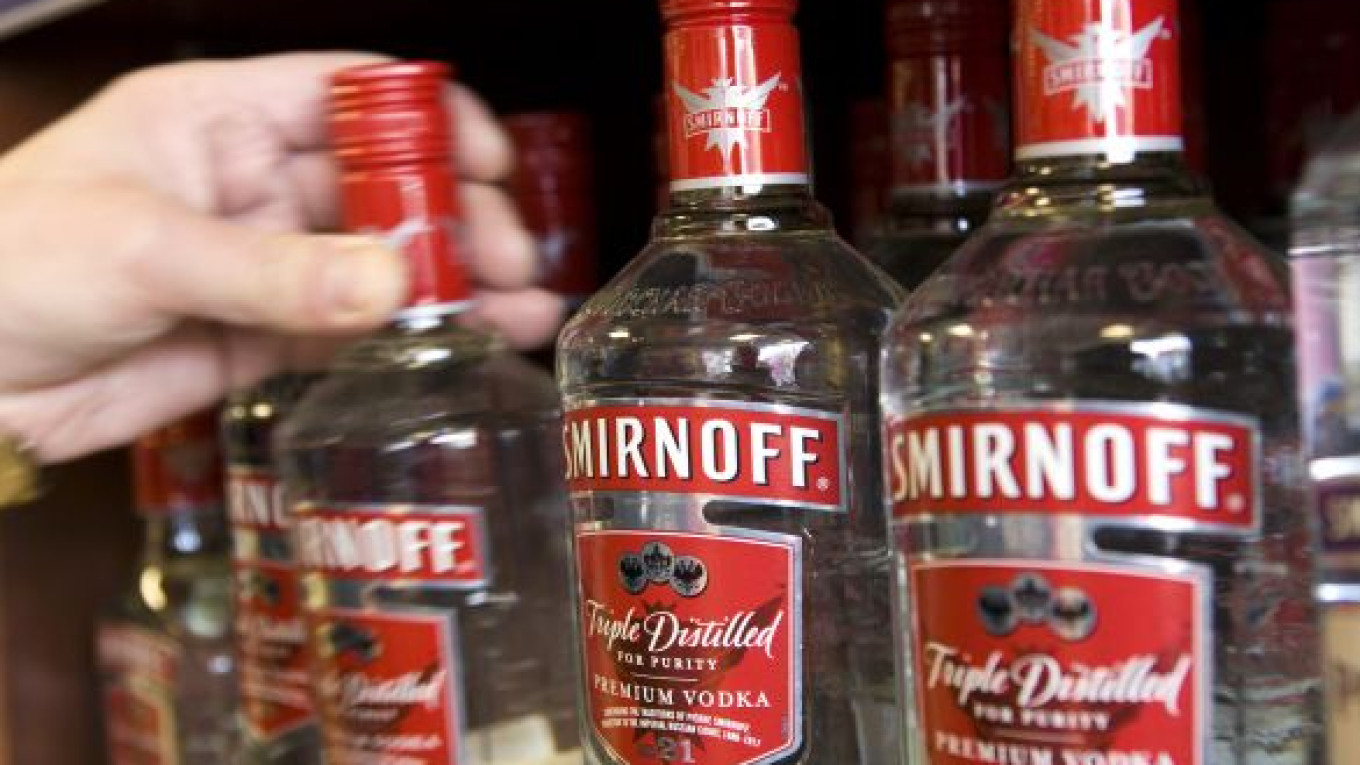A British court has ruled that the word "vodka" can only be applied to products meeting characteristics spelled out in European law, with Justice Richard Arnold saying it deserves the same legal protections as champagne and Swiss chocolate.
The decision was cheered by some in Russia, who said it was a step closer to protecting the coveted "Russian vodka" brand in lucrative foreign markets, where many producers use Russian-sounding names.
Vodka, a diminutive form of the Russian word for water, is widely believed to be a Russian invention, with one theory crediting chemist Dmitry Mendeleyev for nailing down 40 percent as the perfect alcohol ratio at the end of the 19th century.
The High Court ruled in favor of Diageo, the multinational holding behind Smirnoff and dozens of other alcohol brands. Arnold said he agreed that Vodkat, a clear beverage made by InterContinental Brands with 22 percent alcohol content, was deceiving "a substantial number of members of the public into believing that the product is vodka," Sky News reported Wednesday.
"In this case, the court is required for the first time to decide whether a producer of vodka has the same rights as a producer of champagne, sherry, advocaat, whisky or Swiss chocolate," he said.
Vodka is defined in European law as a drink with at least 37.5 percent alcohol content that is made from 100 percent distilled alcohol.
Russian state-run vodka maker Soyuzplodoimport, which makes Stolichnaya vodka and is one of the largest vodka exporters, applauded the decision.
"The decision will help differentiate the concept of 'vodka' and protect it from fakes or free-handed interpretations often used by dishonest producers," spokeswoman Nelly Pugachyova said. The company's other brands include vodkas named Russkaya and Moskovskaya, as well as Sovietskoye Shampanskoye.
Vodka has been a frequent source of litigation in the past, including a successful suit filed by Diageo in 2007 to defend its Ciroc grape vodka, provided that it list nontraditional ingredients on the package.
Many producers in Eastern Europe argue that only vodka made from wheat or potatoes should bear the name.
Some experts even called the decision a potential precedent for further litigation on behalf of Russia's vodka makers.
"In general, this is a step toward recognizing vodka as a product from Russia," Pavel Shapkin, an alcohol expert for the Federation Council's Economic Policy Committee, told The Moscow Times. "In Britain they make vodkas like Orlov and Suvorov branded to hint at Russian provenance, which is also disorienting to consumers since most vodka on the British market is made in Britain," he said.
The decision may "be a precedent for contesting rights for usage of the word."
Russia has attempted to gain control over the Smirnoff brand since the Soviet period. The post-Soviet round of litigation between Smirnoff and Boris Smirnov Trade House ended in 2006 when both brands came under control of Diageo and can only be distributed by a joint venture between Diageo and Alfa Group.
Soyuzplodoimport has battled in court over the Stolichnaya brand and has lobbied to make the term "Russian vodka" patented and tied to geographic provenance. "We insist on a clear division between the terms 'vodka' and 'Russian vodka,' Pugachyova said.
A Message from The Moscow Times:
Dear readers,
We are facing unprecedented challenges. Russia's Prosecutor General's Office has designated The Moscow Times as an "undesirable" organization, criminalizing our work and putting our staff at risk of prosecution. This follows our earlier unjust labeling as a "foreign agent."
These actions are direct attempts to silence independent journalism in Russia. The authorities claim our work "discredits the decisions of the Russian leadership." We see things differently: we strive to provide accurate, unbiased reporting on Russia.
We, the journalists of The Moscow Times, refuse to be silenced. But to continue our work, we need your help.
Your support, no matter how small, makes a world of difference. If you can, please support us monthly starting from just $2. It's quick to set up, and every contribution makes a significant impact.
By supporting The Moscow Times, you're defending open, independent journalism in the face of repression. Thank you for standing with us.
Remind me later.


